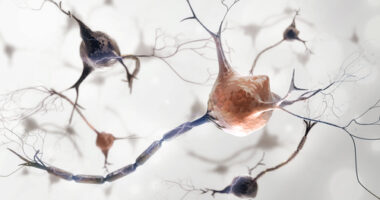BenevolentAI candidate BEN-34712 to go to late-stage preclinical studies
Therapy is an activator of the retinoic acid receptor alpha beta

BenevolentAI is advancing BEN-34712, its experimental oral therapy for amyotrophic lateral sclerosis (ALS), to late-stage preclinical studies.
The studies are expected to support a future investigational new drug (IND) application, a formal request to the U.S. Food and Drug Administration (FDA) to test a potential new treatment in clinical trials.
“We are pleased by the promising advancement of our drug candidate, BEN-34712, towards clinical development,” Anne Phelan, PhD, chief scientific officer at BenevolentAI, said in a company press release.
ALS is a progressive neurological disorder that damages motor neurons, nerve cells that control voluntary movements. The mechanisms leading to this damage aren’t fully understood, but inflammation, oxidative stress, and mitochondria abnormalities are hallmark features of the disease. Oxidative stress is a form of damage resulting from an excessive accumulation of toxic reactive oxygen molecules produced from cellular metabolism. Mitochondria are the organelles responsible for producing most of the energy needed for normal cellular function.
Retinoic acid signaling is essential for normal brain development and function. Receptors for this molecule — a product of vitamin A metabolism — are found at particularly high levels in motor neurons. However, this signaling is disrupted in ALS, which seems to contribute to all three features of the disease.
Early preclinical data on BEN-34712
BEN-34712 is a potent and selective activator of the retinoic acid receptor alpha beta. In preclinical studies involving patient-derived cells, it was able to protect neurons from damage.
Moreover, in a mouse model of ALS carrying a SOD1 mutation, it was able to bind its target receptor in the brain and spinal cord and exert protective effects after 50 days of repeated dosing.
These preclinical data were obtained in collaboration with the Sheffield Institute for Translational Neuroscience (SITraN) at the University of Sheffield.
“ALS patients suffering from this devastating neurodegenerative disease are in dire need of effective therapy, with the current standard of care options focusing on symptom management or offering limited clinical benefit,” said Richard Mead, senior lecturer in translational neuroscience at SITraN. “We believe BEN-34712 represents an exciting development in our research for a potential new treatment.”
BenevolentAI develops advanced artificial intelligence (AI) technologies toward biomedical discovery. Through its AI platform, scientific expertise, and lab facilities, the company is developing a drug pipeline from discovery to preclinical and clinical development.







